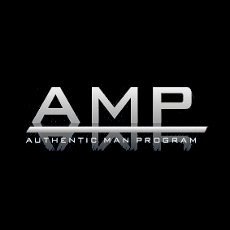During this enlightening recording, you will also learn natural approaches to common conditions (diabetes, coronary artery disease, post-surgical management, hypertension…) as Dr. Vanessa Ruiz, Naturopathic Doctor and Registered Nurse, shares from her expertise to propel your own practice forward!
Vanessa Ruiz – Patients’ Use of Natural and Alternative Treatments to Manage Chronic Disease
Emerging Trends in Healthcare: Natural and Alternative Medicine
Making the case for natural medicine: When it’s effective; when it’s not
Explore different alternative modalities
Water therapy and energetic therapies
Vitamins as cofactors for biochemical pathways
Why minerals are important to therapeutic protocols
Explore Evidence-Based Natural Management of Common Illnesses
Diabetes: Optimal diets and supplements for reducing HgBA1c
Arthritis: Management of chronic pain through physical medicine, water therapy, nutrition, herbs and vitamins
Hypertension and Congestive Heart Failure: Explore nutritional protocols, exercises and herbal supplementation to be considered in the treatment plan
Hypothyroidism: How nutrition, lifestyle factors, vitamin and herbal interventions can optimize thyroid hormone function
Insomnia: Improve sleep duration and quality through vitamin/herbal supplementation
Herbal/vitamin side effects with commonly used sedatives
Cancer: Supplements to avoid when a patient is on chemotherapy and interventions to minimize side effects of chemotherapy
Asthma: Nutritional and herbal interventions to minimize asthma exacerbations
Common Colds/Influenza: Analyze herbal supplements that minimize symptoms, boost immune system and reduce duration of colds
Irritable Bowel Syndrome: Explore optimal diets, herbs and vitamins to manage IBS
Depression/Anxiety: How to manage mood through nutrition and herbal interventions
Hypercholesteremia: Nutritional protocols and supplements to minimize LDL/VLDL and maximize HDL.
Which supplements interact with commonly-prescribed medications.
Surgical Management: Which herbs/vitamins to avoid pre/post-surgery and interventions to optimize surgical healing
Furthering Your Education on Natural Medicine
Supplementation: Why quality matters
Continuing education: Best educational resources to learn more about natural medicine
Incorporating natural therapies into your own life
Understanding scope of practice and safely practicing using natural therapies
Would you like to receive Vanessa Ruiz – Patients’ Use of Natural and Alternative Treatments to Manage Chronic Disease ?
Description:
Imagine a patient, who has been admitted to your floor, has family bring in bottles of vitamins and supplements that he has been taking. Have you felt equipped in these circumstances to really know what these natural treatments were for? Could they be beneficial? Have you felt confident in the medication teaching with these patients? With the rising trend in natural therapies, nurses and allied healthcare professionals need to be equipped with the knowledge of alternative therapies to be able to assess for medication interactions and side effects, and advocate for patients on natural or conventional therapies.
During this enlightening recording, you will also learn natural approaches to common conditions (diabetes, coronary artery disease, post-surgical management, hypertension…) as Dr. Vanessa Ruiz, Naturopathic Doctor and Registered Nurse, shares from her expertise to propel your own practice forward!
Consider This Patient Story…
A 64-year-old female patient presented with intermittent subconjunctival hemorrhaging for two months. Prior medical history positive for Hypertension with V/S 138/82, P 82. She had been taking Diovan twice daily. PT/INR, aPTT, platelet count and von Willebrand factor were WNL. Platelet aggregation was decreased. When asked what supplements were new to her, she reported taking daily multivitamins, magnesium citrate 500 mg daily and vitamin E 500 IU daily.
The patient was advised to discontinue vitamin E due to its risk for increased bleeding. After cessation, subconjunctival hemorrhaging resolved within a few weeks. Patient case studies, like this one, will be interspersed through the day so you are ready to advocate well for patients when you return to work!







